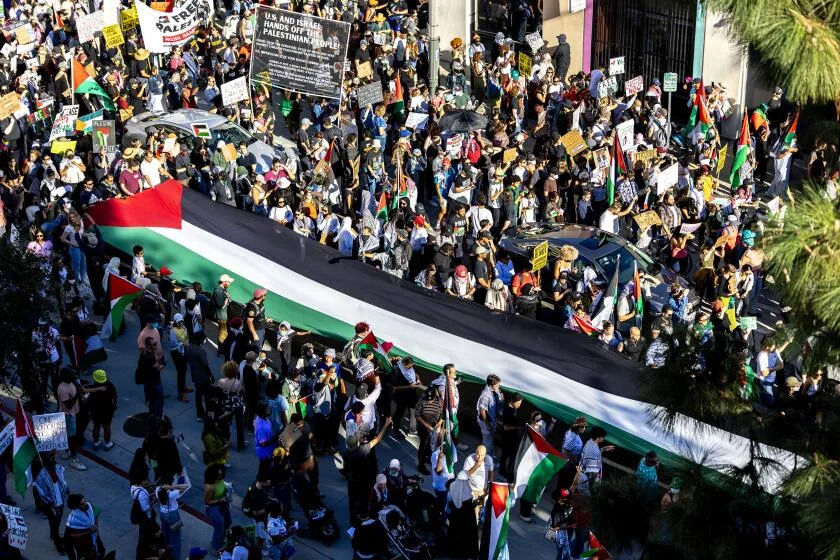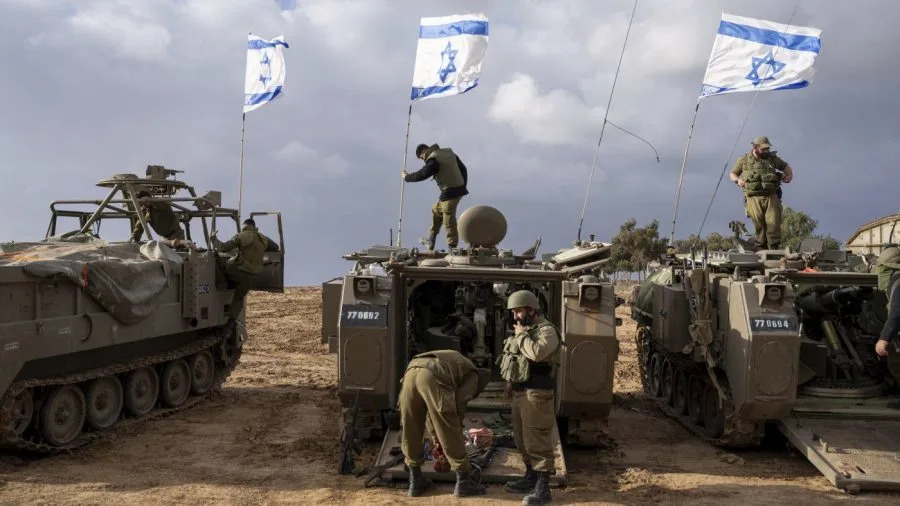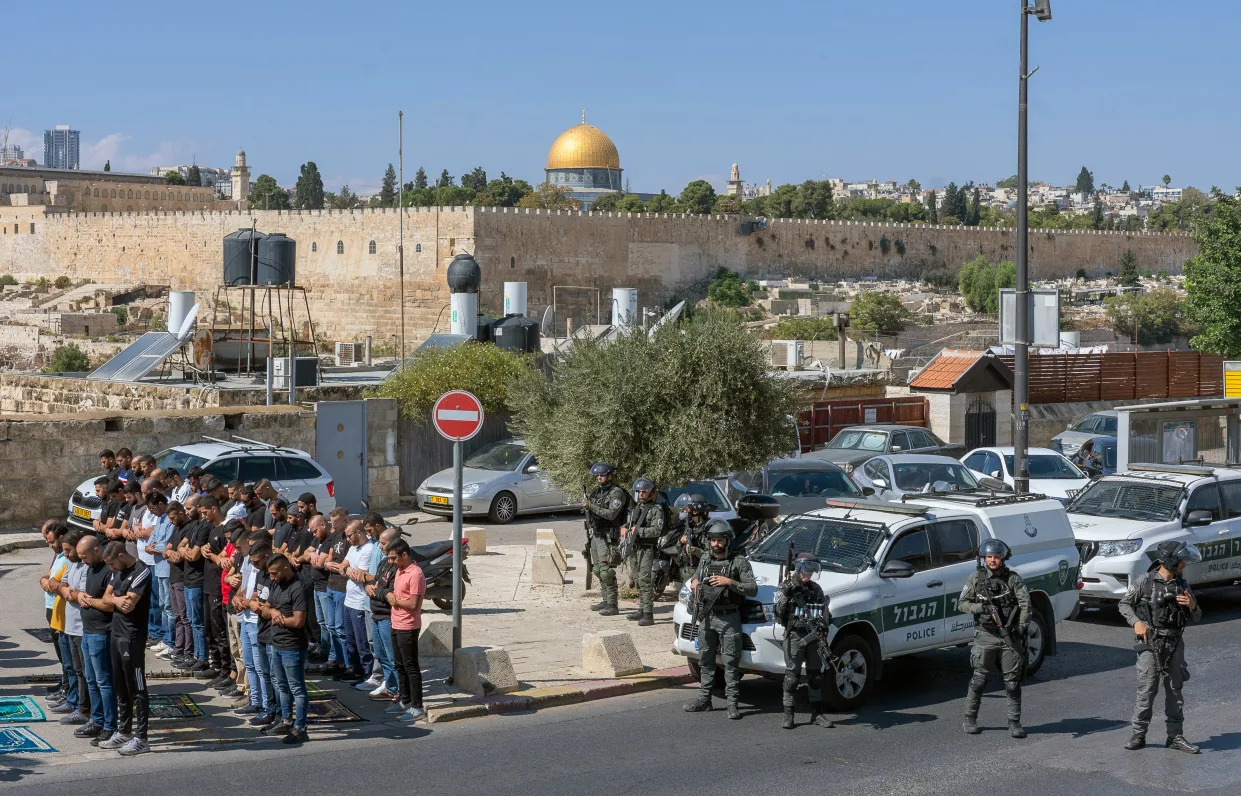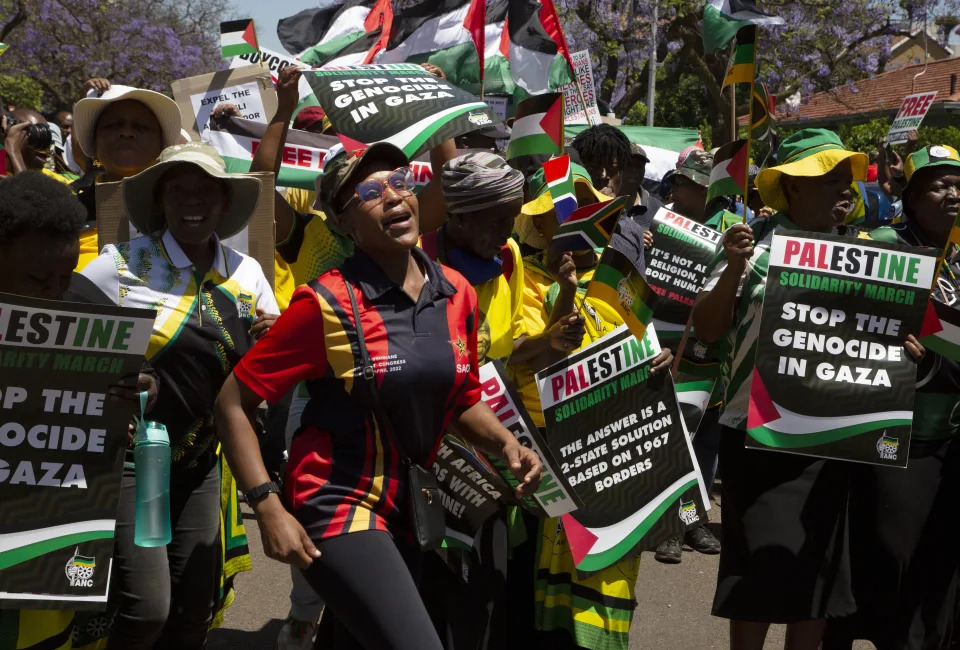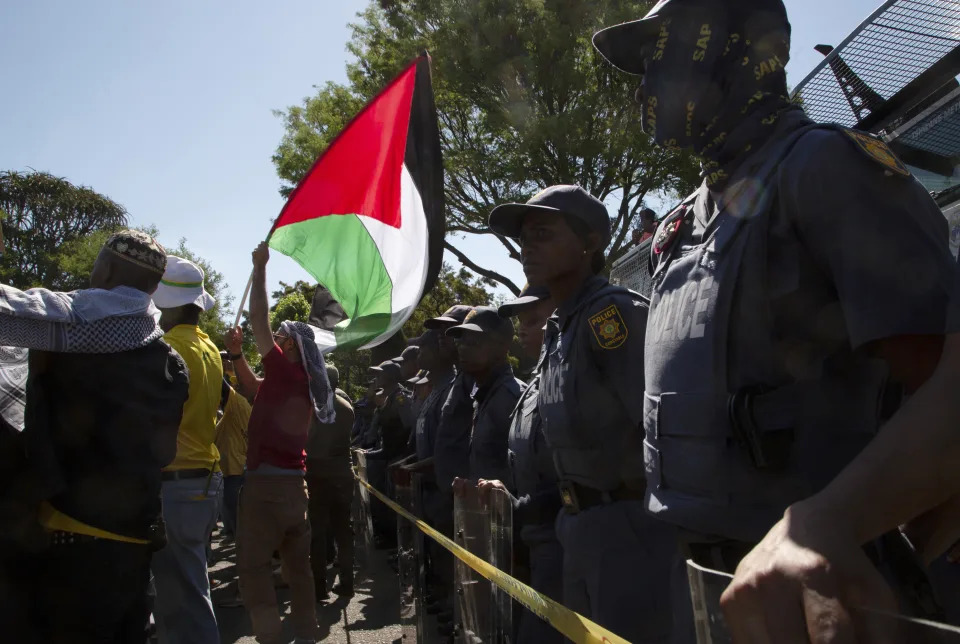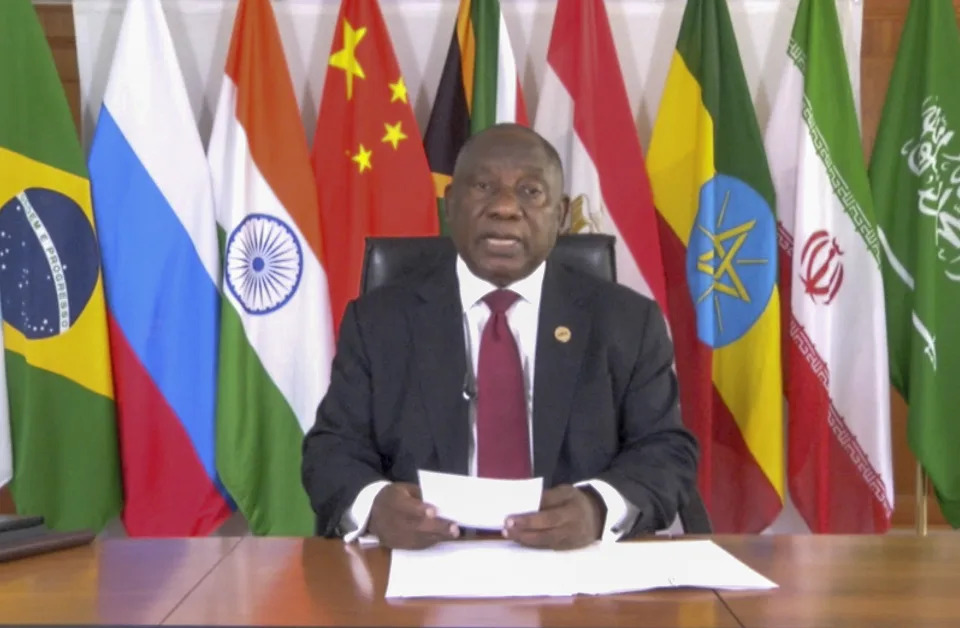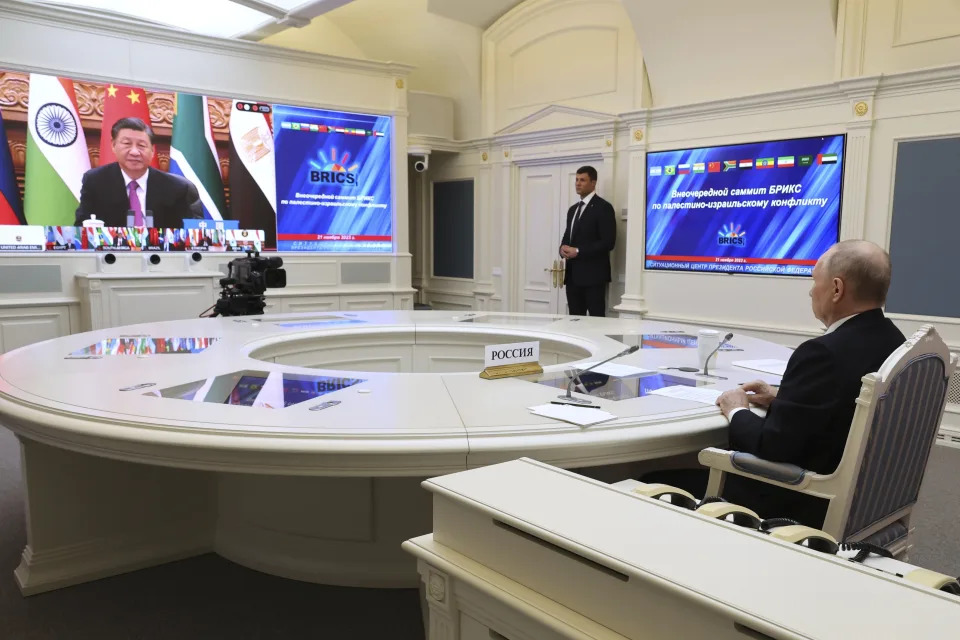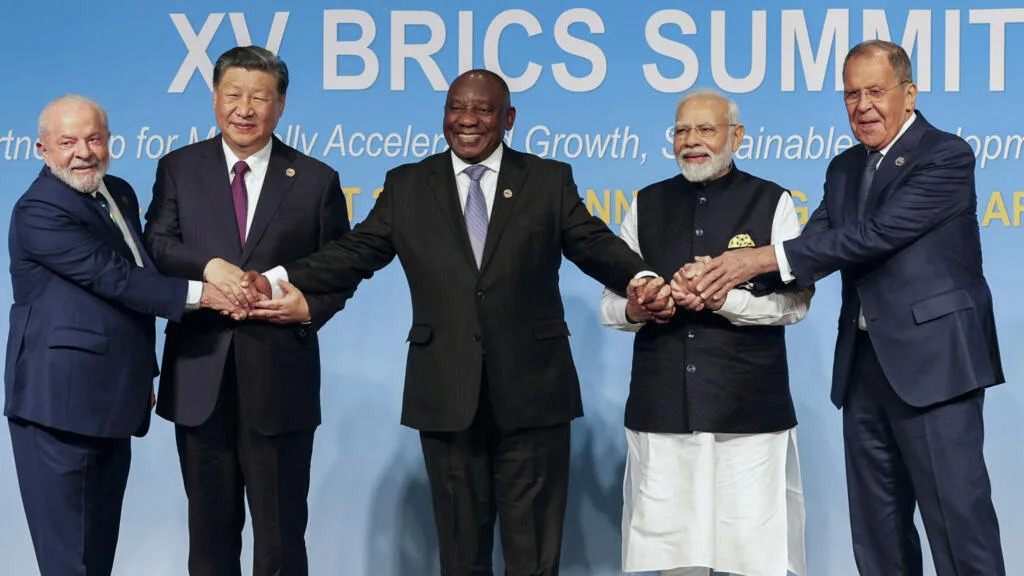JERUSALEM — Eight years after the foundation of the state of Israel, Moshe Dayan, the chief of staff of the Israeli military, stood close to the Gaza border to pronounce a eulogy for a 21-year-old Israeli security officer slain by Palestinian and Egyptian assailants.
“Let us not today cast blame on his murderers,” he said in 1956. “What can we say against their terrible hatred of us? For eight years now, they have sat in the refugee camps of Gaza and have watched how, before their very eyes, we have turned their land and villages, where they and their forefathers previously dwelled, into our home.”
Sign up for The Morning newsletter from the New York Times
His short speech, a little longer than Lincoln’s Gettysburg Address and a powerful reference for Israelis, is perhaps recalled less for this insight into Palestinian anger than for Dayan’s resolute conclusion.
“Without the steel helmet and the cannon’s maw, we will not be able to plant a tree and build a home,” he said.
Today, 67 years later, at a time when Jews have again lost their lives to Palestinian gunmen at the same kibbutz, Nahal Oz, that Roi Rotberg guarded, Dayan’s explicit evocation of the sources of Palestinian “hatred and desire for revenge” remains rare in Israel. Many Israelis have preferred to avert their gaze from the rage at their doorstep.
In the same way, Palestinian insight into the devouring specters of antisemitic persecution awakened in Jews by the Oct. 7 Hamas terrorist attack appears negligible. Mutual empathy is very hard to find.
“Each side begs for the status of five-star victim,” said Mohammad Darawshe, the director of strategy at the Givat Haviva Center for Shared Society, which promotes Jewish-Arab dialogue and is about an hour’s drive north of Jerusalem. “If you are stuck in victimhood, you see everyone else as victimizing and dehumanizing.”
The consequence is a psychological chasm so deep that Palestinians are invisible as individuals to Israeli Jews, and vice versa. There are exceptions, of course: Some Israelis and Palestinians have dedicated themselves to bridging that divide. But generally, the narratives of the two sides diverge, burying any perception of shared humanity.
The 1948 Arab-Israeli war, known to Israelis as the War of Independence, is the Nakba, or catastrophe, to Palestinians. Nakba vies with Holocaust as each side invokes “genocide.”
The relentless weaponization of history goes all the way back to biblical times and the divergent fates of the estranged sons of Abraham — Isaac, the patriarch of the Israelites, and Ishmael, a prophet of Islam.
“On Oct. 7, Hamas trampled on every sensitive nerve in the Israeli psyche,” said Itamar Rabinovich, a former Israeli ambassador to the United States. “Hatred, fear and anxiety are now at their most extreme. But in the end there are two peoples coveting the same land, and two sides to the story you have to try to see.”
The demonization knows no bounds. Since the Hamas attack last month, Yoav Gallant, the Israeli defense minister, has spoken of fighting “human animals.” Ismail Haniyeh, the head of the Hamas political bureau, has described Israel as “neo-Nazis supported by colonial forces.” Benjamin Netanyahu, the Israeli prime minister, has in turn called Hamas “the new Nazis.”
One Israeli lawmaker, Ofer Cassif, has alluded to “pogroms” against Palestinians to describe the relentless Israeli bombardment of Gaza, a word whose specific historical meaning is the slaughter of Jews and a word that many Israelis have used to describe the killing by Hamas of some 1,200 people last month, according to Israeli authorities.
Of course, wartime propaganda describing enemies as monstrous is not confined to the Middle East. The United States portrayed the Japanese as subhuman during World War II, and the Japanese represented Americans as deformed brutes. Nazis depicted Jews as vermin to justify mass murder.
But something in the Israeli-Palestinian confrontation — two peoples located at the nexus of places holy to Judaism, Islam and Christianity — imbues the conflict with a peculiarly ferocious charge resistant to every attempt to tame its potency.
“After 76 years, Israelis and Palestinians have only one thing in common: the sense of living beside people who want to kill you,” said Rula Daoud, a Palestinian Israeli who works to promote peace as a director of an organization called Standing Together.
She dates her decision to try to build bridges between the two peoples to an incident in a bakery in the southern Israeli city of Ashdod during the 2014 war in Gaza. She was standing in line for bread reading a newspaper with a photograph of Palestinian children who had been killed. “I hope they all die, I hope they all burn to death!” the Israeli woman next to her exclaimed.
“Oh really?” Daoud said, gripped by rage. “Shall we stand on the roof here and watch the children of Gaza burn?”
Soon after, she quit a job in audio therapy, determined to overcome the blindness of hatred.
In general the decades since the collapse of the Oslo Accord of 1993 have accentuated the psychological gulf. Day-to-day interaction between Israelis and Palestinians in the West Bank and Gaza has been drastically reduced by walls and fences in a push for physical separation.
Almost forgotten are the Palestine Liberation Organization’s recognition in 1993 of Israel’s right to exist in peace, and Prime Minister Yitzhak Rabin’s determination to pursue that peace, a decision that cost him his life in 1995 at the hands of an extreme right-wing Israeli assassin who said he acted “on the orders of God.”
These were the ephemeral glimmerings of shared humanity, soon quashed.
In the intervening decades, Hamas and the ultranationalist religious Israeli right have each extended their influence. The conflict now involves fundamentalist religious ideologies, distinct in critical regards but equally convinced that all the land between the Mediterranean Sea and the Jordan River has been deeded to them by God.
A political and military struggle between two national movements for the same land can be resolved by compromise, at least in theory. France and Germany settled their differences in Alsace-Lorraine. Peace came to Ireland. But absolutist claims of divine right to territory appear impossible to reconcile.
“The humanity of the other is less acknowledged for the simple reason that human contact has become rare,” said Yuval Shany, a professor of international law at the Hebrew University of Jerusalem. Where there is contact, as between Israel’s Jewish and Palestinian populations, some measure of empathy stirs.
In 2014, during an earlier round of Israel-Hamas fighting, I stood in eastern Gaza City, gazing at tangles of iron rods, jagged outcrops of masonry and air thick with dust. At the time, a 9-year-old child in Gaza had memories of three wars in six years and needed no indoctrination in hatred.
Mahmoud al-Zahar, a co-founder of Hamas, whose charter calls for Israel’s destruction, told me in an interview that year: “Israel will be eliminated because it is a foreign body.” Referring to Israeli Jews, he said, “Why should they come from Ethiopia, or Poland or America? There are 6 million in Palestine. OK, take them. America is very wide. You can make a new district for Jews.”
The delusional fantasy that the enemy can be made to vanish has since grown. “On the Palestinian side, the ideal solution has become that Israel disappear,” Shany said. “On the Israeli side, there is a desire for Gaza to go away, even if that means bombing it away. Of course, that is not a solution.”
Neither people, Israeli nor Palestinian, present in roughly equal numbers on the land to which they are fiercely attached, is going away. But increasingly each has denied even the identity of the other. West Bank Palestinians seldom refer to “Israelis,” almost always to “Jews.” Israel resists calling its Arab minority, more than 20% of the population, “Palestinians,” which is what they are.
“You are dealing with two traumatized peoples,” said Gershom Gorenberg, a historian and author. “The trauma of the present is linked to multigenerational trauma. People can’t even agree on events, let alone what the events mean.”
A deadly explosion occurred at the Ahli Arab Hospital in Gaza City on Oct 17. Beyond that, everything about it is disputed.
Absent recognition, dialogue or understanding, blood flows. Rabinovich, the former Israeli ambassador, said he had seen a video of a Hamas gunman involved in the Oct. 7 massacre. The gunman phones his father back in Gaza and says: “I am on the other side killing Jews. They cannot live happily when we live the way we live.”
The Palestinian hatred Moshe Dayan perceived and vowed to resist by being “prepared and armed, strong and determined,” grows still, fed by Israeli oppression, fencing-off and control, as well as chronic Palestinian misgovernment. Palestinians in Gaza, whose dead number more than 12,000 according to the Health Ministry in Gaza, fear annihilation.
These fears are met by the “Never Again” of a Jewish people that knows the meaning of genocide in the form of the Holocaust and sought through the foundation of its own state to put an end to millennial persecution.
The defeat on Oct. 7 was a shattering blow to this aspiration. This war in Gaza, triggered by Hamas’ ruthless application of its charter, is existential in that sense for an Israel that suddenly feels smaller and more vulnerable.
“If we cannot get beyond the walls, share this land, and come to value life over death, we are all doomed,” Daoud said. “Every three years or so, we will be sending kids of 18 and 19 to their deaths.”
c.2023 The New York Times Company
